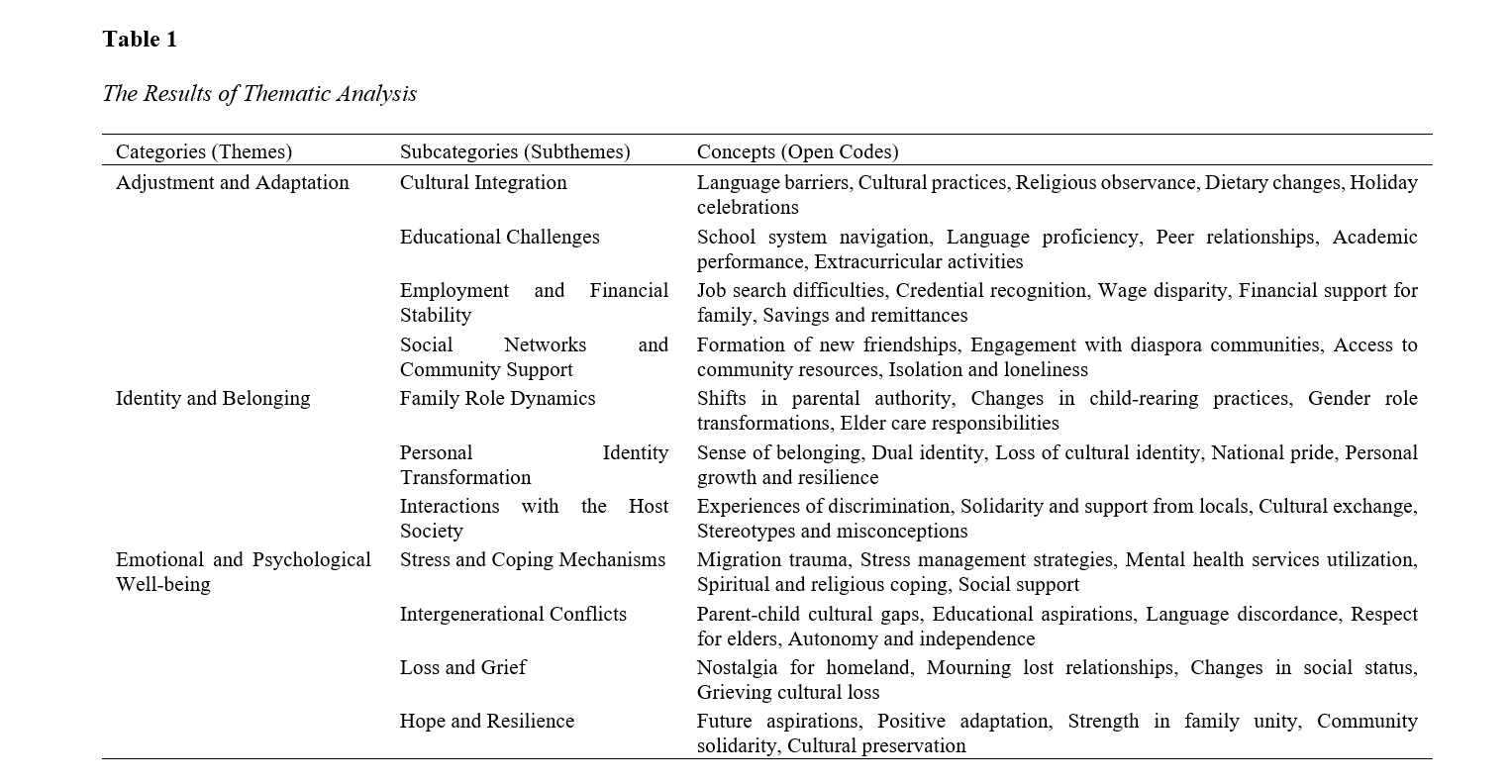The Psychosocial Impact of Migration on Family Roles and Identity
Abstract
Objective: Migration significantly affects individuals and families, reshaping identities, roles, and psychosocial well-being. This study aimed to explore the nuanced psychosocial impacts of migration on family roles and identity, seeking to understand the complexities of adjustment, identity transformation, and emotional well-being within the migratory context.
Methods and Materials: Employing a qualitative research design, this study conducted semi-structured interviews with 24 participants from various migratory backgrounds. Theoretical saturation was achieved, ensuring a comprehensive exploration of the experiences and perceptions of migrants. Thematic analysis was employed to identify and categorize the primary themes and concepts emerging from the data, focusing on the psychosocial dimensions of migration.
Findings: Three main themes were identified: Adjustment and Adaptation, Identity and Belonging, and Emotional and Psychological Well-being. Under Adjustment and Adaptation, categories such as Cultural Integration, Educational Challenges, Employment and Financial Stability, and Social Networks and Community Support were explored. Identity and Belonging encompassed Family Role Dynamics, Personal Identity Transformation, and Interactions with the Host Society. Emotional and Psychological Well-being included Stress and Coping Mechanisms, Intergenerational Conflicts, Loss and Grief, and Hope and Resilience, each providing insights into the emotional and psychological experiences of migrants.
Conclusion: The study highlighted the profound and multifaceted psychosocial impacts of migration on individuals and families, revealing the challenges and adaptations necessary for cultural integration, the renegotiation of identity and family roles, and the emotional and psychological experiences encountered. These findings underscore the necessity for supportive policies and practices that address the complex needs of migrants, facilitating smoother integration and promoting well-being.
Downloads

Downloads
Additional Files
Published
Issue
Section
License
Copyright (c) 2024 Solmaz Bulut, Baidi Bukhori (Author); Seyed Amir Saadati (Corresponding Author)

This work is licensed under a Creative Commons Attribution-NonCommercial 4.0 International License.






